The Underrated Kindness of the INTJ Personality Type
If you’re reading about INTJs online, you could be forgiven for assuming they’re not the kindest people around. INTJs are often stereotyped as blunt, rude people who never consider other’s feelings. Even the INTJs themselves joke about this. My sister is an INTJ, and a while back when I wrote a post about how other people view INTJs she suggested with her typical dry sense of humor that I just save myself some time and confirm they really are “unfeeling bastards.”
Joking aside, this robotic stereotype is far from accurate, as anyone who’s actually friends with an INTJ can tell you. Once an INTJ lets you see past the tough, intelligent self they present to the world it’s not too hard to discover that there’s a kindness to them that’s often underrated.
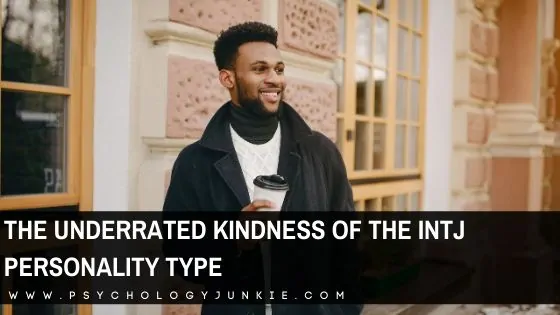
Not sure what your personality type is? Take our new personality questionnaire here. Or you can take the official MBTI® here.
This article contains affiliate links. If you purchase an eBook from one of my links I get a small percentage back to help run my site.
A real-life example of INTJ kindness
The INTJ I know best is my sister. She probably won’t want me to talk about her too much, but I’d like to share with you one specific example (don’t worry – I got her permission before publishing this). If you talk with her about why she went into chemical engineering for her career you’ll discover two key motivations: 1) she loves applied science and math, and 2) she wanted to make money.
Those might not sound particularly “kind” on the surface, but if you pry a little more you might find out one reason she wants to make money is so that she can give it away. In fact, she’s shared with me that being able to provide financially for our parents in their old age is one of the main reasons she chose a lucrative career path. She’s an incredibly generous person towards artists, causes she cares about, and people she knows have a legitimate need. My sister is intelligent, sarcastic, blunt, efficient, and occasionally intimidating (as you’d expect from an INTJ), but she is also deeply and truly kind.
This isn’t an isolated case. There are plenty of real-life examples of INTJs volunteering at animal shelters or with Habitat for Humanity, staying stubbornly loyal to their closest friends, or lending a listening ear (and some practical advice) when someone needs help.
What’s going on inside
When we’re looking at INTJs in terms of Myers-Briggs® theory, it’s useful to take a look at their function stack. If you’re not familiar with cognitive functions, you can check out my post “The Simplest Guide to Myers-Briggs® Functions Ever” and Susan’s post “The Cognitive Functions – What Are They?” for an overview of how that all works.
INTJs lead with Introverted Intuition, which is a pattern-recognizing, big-picture learning process. Their auxiliary function is Extroverted Thinking, an efficient, detail-oriented decision-making process. Those are the two mental processes that INTJs are the most comfortable with, but they also consciously use two others. Introverted Feeling is their tertiary process, and it’s a personal, authenticity-focused way of making decisions. Their inferior process (which often shows up when they’re stressed) is Extroverted Sensing, a learning process that’s experiential and sensation-focused.
For purposes of this discussion, the one we want to look at most closely is their tertiary Introverted Feeling. This process is all about staying true to yourself and acting in accordance with your personal values. Personality Hacker gave it the nickname “Authenticity” because it asks, “Does this feel right to me?” It works with an INTJ’s Introverted Intuition to take in information about what’s going on, and then decide how to respond in a way that feels authentic. Then Extroverted Thinking helps find a way to take that action into the outer world.
Types that lead with Introverted Feeling are widely considered some of the kindest personality types. INTJs use the same mental process that INFPs and ISFP lead with. They’re just not as comfortable with it, and they hide it better. In many cases, they don’t trust their Feeling side and are reluctant to use it for decision making, especially when they’re younger. Generally, people don’t really start to develop their tertiary function until they’re in their 20s or 30s. At that point, the typical INTJ will be much more comfortable acting on the Feeling side of their personality.
Recognizing INTJ kindness
Sometimes, INTJ kindness doesn’t come in a form that people readily recognize. Of course, INTJs are kind in traditional ways like offering to do dishes when staying over at a friend’s house or driving to pick up a family member whose car broke down. But they also show kindness in ways that are very much influenced by their personality type.
One example is INTJ honesty. INTJs can be really good listeners. However, they’re not the sort of person who will just listen to you rant about something then offer empty platitudes about how it’ll all turn out in the end. They’re strongly motivated to find efficient, effective solutions to problems. If an INTJ is trying to solve your problems or offering you blunt, honest feedback it is often meant as a kindness. Unless you tell them that you just need a listener, not a problem-solver, the kindest and most helpful thing from their perspective is to try and help you reach your goals and improve your life.
Another thing to know is that INTJs are much more sensitive than many people give them credit for. They appreciate honesty, and healthy INTJs welcome constructive comments. But if you’re nasty to them or betray them, an INTJ will shut down their softer more vulnerable side. It’s not that they’ll withhold kindness if it’s not reciprocated. It’s just that they’re unlikely to let you get close enough to see their kinder, gentler side very often if you’ve proven you can’t be trusted with their authentic selves.
It’s also worth noting that INTJs rarely recognize themselves as kind. My sister, for example, is consistently shocked by how many people describe her as “nice.” INTJs tend to brush off comments about their kindness or suspect that they’ve somehow fooled people into thinking they’re nicer than they actually are. If you’re an INTJ, don’t underrate your own kindness. It’s okay to let others – especially the people you value and trust – realize that you can be a nice person.
Your Turn
What are your experiences with INTJ kindness? Let us know in the comments! Want to get an eBook about your INTJ personality type? Check out Susan’s eBook: The INTJ – Understanding the Strategist.
Other Articles You Might Enjoy:
What It Means to be an INTJ Personality Type
The Shadow Functions of the INTJ Personality Type
10 Things That Excite the INTJ Personality Type
7 Reasons Why You Need an INTJ Friend in Your Life
About the Author:
Marissa Baker is the author of The INFJ Handbook (available in the Amazon Kindle Store). You can find her online at LikeAnAnchor.com where she blogs about personal growth and development from a Christian perspective.
Subscribe to Our Newsletter

Want to discover more about personality type? Get the inside scoop with Susan Storm on all things typological, along with special subscriber freebies, and discounts on new eBooks and courses! Join our newsletter today!





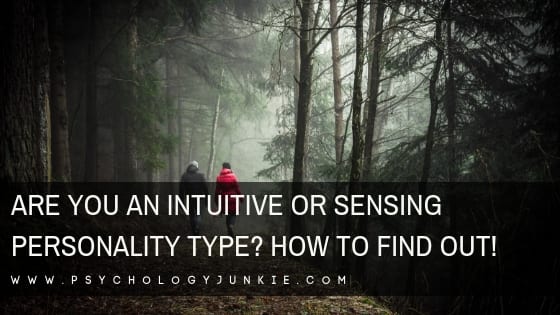
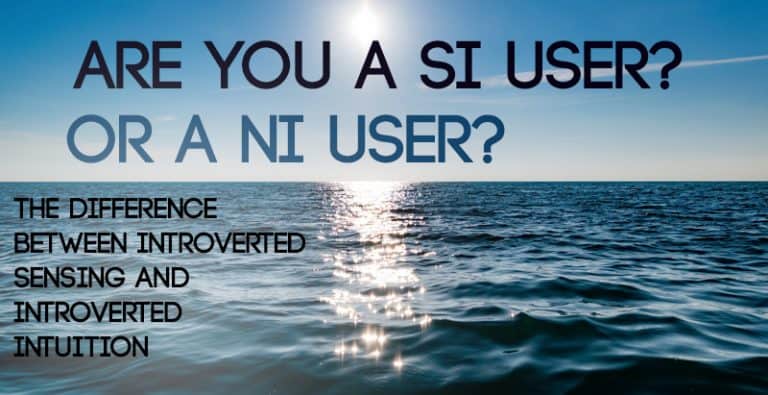
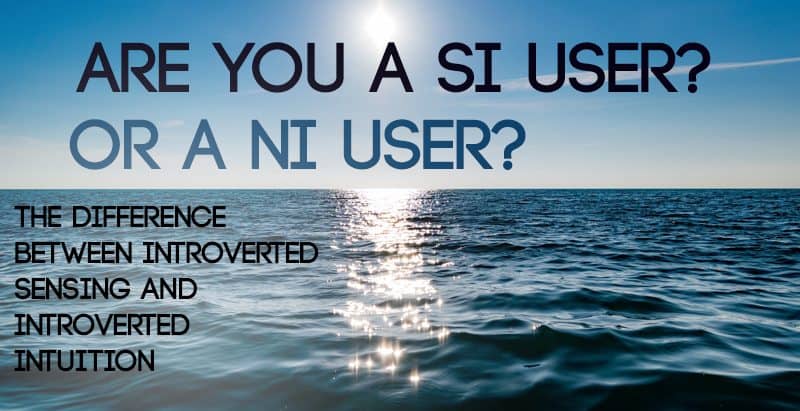
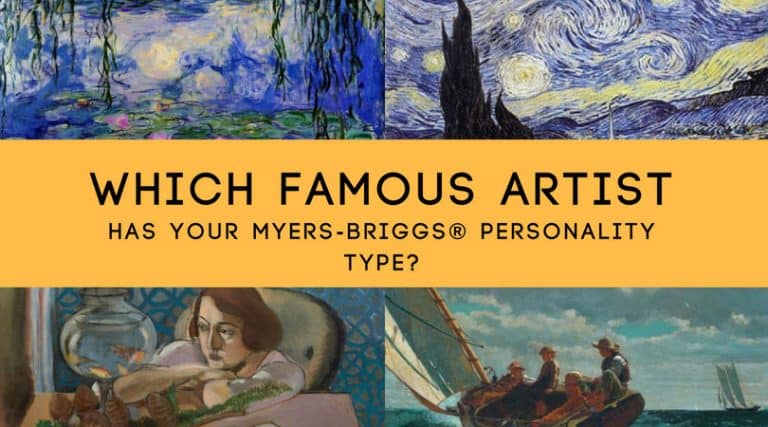
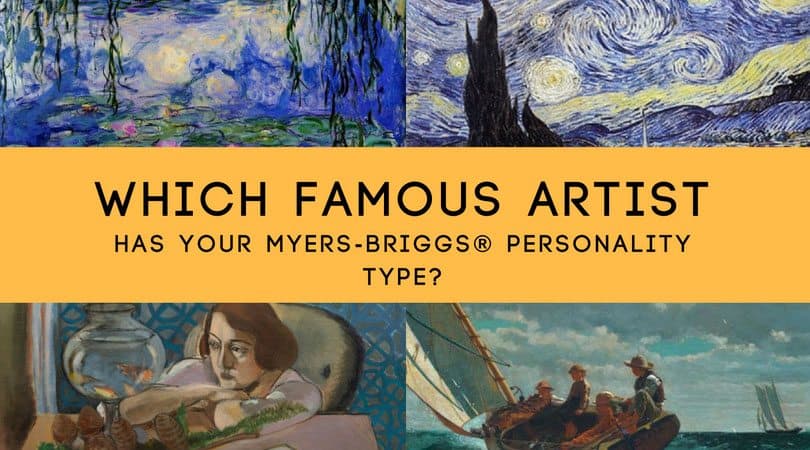


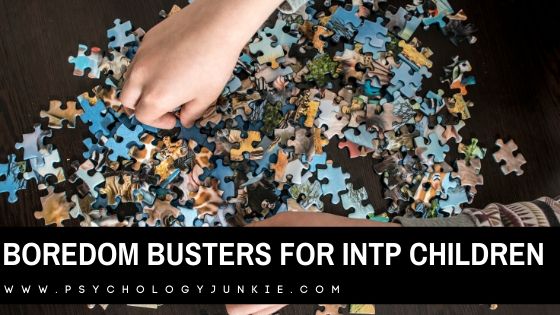

I am a very ‘stereotypical’ INTJ myself, and my wife (an INFP) often jokes that “my good opinion once lost is lost forever.” This is very true and I am often blunt, too the point, looking forward with a constant spinning of my mind to the best course for an given scenario. As a result I come out to those who do not truly know me as cold and overly calculating.
But in all of that, maybe aside form losing my good opinion, I am thinking about how to best serve and lead those that work for me, how to best provide and teach my children, how to best show my neighbor he is valuable, or how to best aid the causes I support. I don’t think of it as a kindness just as how I think toward others, but always with that calculating methodology to provide the most of my time, my resources, and my service to those people.
Even if it is bluntly done it is done out of genuine care toward the people or groups.
So thank you for this article. It is volumes of what and who I am and will be great to share with those a little confused at times on my lack of empathy, though I know it is really there and they just don’t see it.
What exactly are the causes you support
Awesome post!
I am borderline INTJ and INFJ. My T and F plays at the middle for every tests that I take. Maybe because I am also a chemical engineering graduate and come off as dominant, and have a knack for analyzing people as well. Lol idk too
After reading a lot of articles about the two types, I have concluded that I can be both. I can be INTJ or INFJ when I need to. INTJ at technical stuffs and stimulating bickers, while INFJ to my friends. Could that happen? I’m very private you see.
It’s true… Part of me wants to share this so people understand better my motivations… but oh my goodness I don’t think I could handle people thinking of me as nice! best keep this under lock and key… I really do resonate with your sisters desire for making money… I always tell people I’m just going to marry a rich husband… because making money isn’t true to who I am… There are too many other focuses in my life… I’d rather volunteer all my time away doing things that are needed… and I’ll probably never find a rich husband because unfortunately my goal for being rich is too give away money and have a home where people can come if they need to. To always have enough to give that I don’t have to stress about helping someone in need…
So, I’m an INTJ, and this is the only I’ve actually connected fully with something I’ve read about myself. Thank you Marissa, so much for this article, and thank your sister for her bold sacrifice as a research subject for the greater good.
Thank you so much for this. Discovering my feeling side in my 30s was like a spiritual awakening for me. It changed my life in big ways, so much so that I even wondered if I was still an INTJ at all. This post was a sweet acknowledgment that those other parts of me are still there too, and that they all combine together to form a rich whole that I rather like!
Thanks for the article-I know I can be perceived as not warm as an INTJ. The garbage man saw that I was grilling in my garage last week and jokingly yelled something about being on the right street at the right time and that it smelled great. I could have laughed it off, but I thought-this guy is probably tired and hungry and I cooked 2 extra burgers to have as leftovers. Instead, I added cheese and all the fixings, wrapped them up, and chased him down the street. He said, “oh, man, I was just kidding-I said I know, but thought it might help your day”. He was very appreciative. I think there are so many of these kinds of opportunities if we just listen for them and then ACT upon them. This is where INTJs can use their intuition to brighten someone’s day.
That is THE SWEETEST. I could envision this all happening. You seriously made his day, and then some! ???? The gift of time and attentiveness. You showed him that not everyone is tuned out. In a society of perpetual busyness and self-preoccupation, it’s these kind acts toward another that stick with a person. Thank you for being you!!
-Sappy INFP
Yes.. you are right and the last para perfectly. I can’t believe myself that someone told me that I’m caring. I go through the things I did to them and try to find which action I did they counted as caring. And I try to offer the same to others too. But everyone is different. Some accepts our suggestions as caring while others call it arrogant. In total that is what that makes all of human to build a bond between all the highs and lows.
This is true. I am often shocked at how differently I act with strangers compared to my ENFP sister. With strangers, I would come close to the INTJ stereotype but with my sister, I am very “bubbly” or “soft” for lack of better words. If someone who was an acquaintance of mine heard that I can act like that, they likely would believe it to be a lie because of how much of a dichotomy the behaviors are.
That said, I have worked hard on developing my Fi and have a moral compass that I stick to unwaveringly. This also has the drawback of being very sensitive to what I consider evils. For example: I rarely enjoy online games anymore despite being better at them than I have ever been. The reason for this is because I hate to see toxic players be mean to new players. Seeing that saps all of the fun out of the experience, for me.
This was meant to be short but I think I missed that mark long ago. I hope this comment provides value and insight to others. I’ll reply to responses that warrant them if I get a notification.
…I’m feeling very called out right now, lol. ????????♀️
It’s quite true. As a female INTJ, people quite often misunderstand me as being too harsh and merciless. The article has been quite refreshing.
If very rich, I would like to open a a restaurant chain for the poor people, very nutritious with rustic food like meat, bread, potatoes and cold drinks ….
Wait a minute…
Grayson Pray,
I like controlled chaos … It’s paradoxical … So a game is just a game … It’s the precise time to laugh as much as possible and break the rules … Or when?
Personally I don’t understand this theorical “development” of the introverted feeling around 20-30 … I have always had a moral compass. I have always been very sensitive since childhood. So this is another excess of the “functional dynamic” of acording to me. It is for this reason that I mainly base myself on MBTI metrics: the dichotomies and case studies.
I read a part of Jung, I do not reject his work. It’s a treasure. Because curiously I observed two trends: the total rejection of the functions or on the contrary the veneration of the functions like the words of a Messiah beyond the current MBTI. Few, very few people are able of a balanced synthesis.
I figured out I was an introvert when I was really young and then it was confirmed with a Myers-Briggs test that I took for work in my 20’s. I am a female INTJ and a chemical engineer! I did not go into chemical engineering because of the money but I have been using it to better the lives of my husband and kids. I share articles like this with people I interact with at work that I don’t think understand me and have experienced my harshness to explain myself. Thank you for sharing.
I am a female INTJ and I have always called myself a mean girl. Me and my closest friends constantly get into arguments on this subject with them saying I am not and me saying I am. But I do have a very sensitive inner self. It often tells me nice things to do but I don’t often trust it. I’m afraid it will lead to embarrassment or be badly received but I am nearing 30 now and the older I get the more I am learning to trust this inner kindness voice and it’s instincts. The times I have listened to it it’s been right on. And I have felt good that I took the plunge and followed its advice.
Honestly i´m self conscious about what i say to people, because i might say things that they find offensive (like mean or a little cruel) and that is not my intention. The worse part is that when that is pointed out, i don´t really get why it was a mean thing to say, luckily most of the time this things happened people also think i´m being sarcastic or telling a joke.
This also why i have trouble having normal conversations when talking to people i don´t know very well, adding an extra “filter” to things I say.
My best friend’s husband is an INTJ and he is one of the most kind and generous people Ive ever met. He’s usually the first to offer money, help people move, or even offer a temporary place to stay. But he also shows his kindness by taking care of others in more subtle ways – like offering to go hiking with his ENFP wife and her INFJ bestie (me) even though he’ll be the odd one out in all our NF silliness, because he’s concerned for our safety.
I think INTJs get a bad wrap because of the crunchy exterior, but they can be really wonderful people when you get to know them.
I am an INTJ woman,I am pretty much pissed at how people think I bring hell when I just said the truth and they think it’s hell. I’m annoyed by these comments that I’m rude,arrogant and blunt. It’s not fair!
Yes, you are absolutely right about this 😊👍🏻
An INTJ is absolutely a very kind person ‘inside’ but they will only let their inner circle to see that 😄 not everyone !!!
Because they are a very exclusive and reserved person 😉
So if they let you to see that side of them, you are a very lucky person 😆😍
Yes, you are absolutely right about this 😊👍🏻
An INTJ is absolutely a very kind person ‘inside’ but they will only let their inner circle to see that 😄 not everyone !!!
Because they are a very exclusive and reserved person 😉
So if they let you to see that side of them, you are a very lucky person 😆😍
You’re absolutely right about this. I never applied to the stereotypical heartless and emotionless INTJ type myself. I may come off as blunt, rude, or arrogant at first sight but deep down I’m none of these. I just, for many reasons, want to hide them and not show them easily. It made me really surprised when I read about your sister’s wish to earn money just so she could provide her parents financially; because I’m the same! I studied cellular and molecular biology since I LOVE biology and it also has a high salary where I live.
Given that the feeling is based on values then if your values as an INTJ revolve around helping others or kindness then of course this will be something that is important and will easily be picked up by others. I’ve been told numerous times that I’m generous and helpful – this is because I’m hugely motivated and value helping people by finding them great solutions to their problems. I’m pretty sure that most INTJs don’t kick kittens either! We just don’t give out compliments that are not warranted. You know you get the truth from an INTJ and that in itself is kind.
I will admit I’m floored when someone, who is not my mother, calls me kind. When exactly did I give you that impression? More importantly why??? I have always been seen as rude, direct, blunt, doesn’t play well with others, needs to learn interpersonal skills, and just freaking weird.
I want to help people. It’s why I’m in the job I am, helping people stay healthy by getting their stupid wellness visits, but I have been told so many times to stop badgering people about the visit. I hate the human interaction, love the fact I can help people. I embrace the INTJ side of me. And the extrovert that comes out around the people I trust most.
I’ve only met one person who I can quite confidently say is an INTJ so, as an obligatory disclaimer, I don’t want to over-extend my ‘observations’ to all INTJs (I guess I’m stating the obvious here but well, given my personality type & stage of development I felt this needed to be said). An INTJ can often show kindness in ways that to a large proportion of society appear antithetical to what constitutes socially mandated acts or, more broadly, ways of expressing kindness. I greatly appreciate that they’ll call you out on your own BS & tell the truth to ACTUALLY help you in the long run as opposed to offering overt emotional support & affirmations that everything will be ok (yes we all need this sometimes but for some types & dependent upon individual context, that can actually do more harm than good). When you don’t take their advice (which is based on deep insight) and repeat the same mistakes over & over again I’d imagine for an INTJ they’d feel like banging their head against a brick wall so the fact that they keep going is a genuine act of kindness in & of itself. INTJs can about improving you & helping you to understand yourself more in, shall we say, some quite unorthodox ways that can really test your limits, but as much as I despise cliches “if there’s no pain then there’s no gain.” As a fellow NT type I do find it difficult to understand & share my own emotions in ways that most people would recognise, so there’s some relatability here so I do appreciate that even what most would consider as pretty ambiguous signs of vulnerability, actually for an INTJ (who I have hurt in the past) is, in fact, quite profound. Perhaps, ironically, even though INTJs have the stereotype of being “the coldest humans” this particular INTJ has actually helped improve my own emotional intelligence or at least helped me to strengthen my own cognitive strengths to offset my weaknesses. I also appreciate their sardonic sense of humour; irony & absurdism is sometimes the antidote you need when you’re at your lowest point & that doesn’t go unnoticed. A direct kind word would be appreciated at times though (please to strategise a way of killing me off for saying this though 🤪🤓)
“Truth is like the stars; it does not appear except from behind obscurity of the night. Truth is like all beautiful things in the world; it does not disclose its desirability except to those who first feel the influence of falsehood. Truth is a deep kindness that teaches us to be content in our everyday life and share with the people the same happiness.”
– Kahalil Gibran
I found the thing about INTJs brushing off their kindness so true. I’m an INFP, but my closest friend is an INTJ. We’re both still in high school, but she’s a bit older than me. She has her driver’s license, but I don’t. Recently, my mom went out of town, and I needed help with rides for a few days. She was immediately fine with helping me out, even before I told her that I would give her some money for gas. She then tried to explain to me how it really wasn’t a big deal or out of her way at all, even though it meant a lot to me and was kind of out of her way. She even gave several points on how it actually helped her out. There’s been many other instances like this. She’s one of the kindest people I know, but it’s different than how other people are kind sometimes. It’s hard to explain, but I definitely found this article to be true